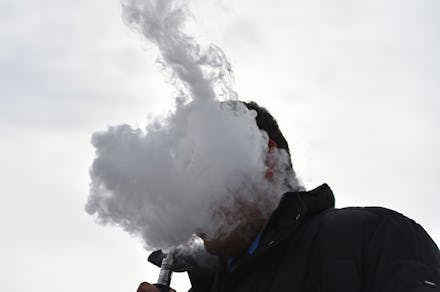Does Vaping Cause Cancer? Some Vapes Are More Dangerous Than Others, Study Suggests

Vaping has helped millions of people quit smoking, according to one study — but if you're going to make the transition from deadly tobacco to an e-cigarette, it's worth knowing that some devices could be more toxic than others.
Read more: Will Vaping Give You Popcorn Lung? Here's the Truth
According to a study published in Environmental Science and Technology on Wednesday, vapes with two coils are less toxic than vapes with one coil.
"Emission rates ranged from tens to thousands of nanograms of toxicants per milligram of e-liquid vaporized, and they were significantly higher for a single-coil vs. a double-coil vaporizer," the study said.
The culprit is heat. The coil is the part of the device that's heated to vaporize the e-liquid as it passes through. With a dual-coil configuration, the heat is evenly distributed between the two coils, which "produces stronger, warmer and higher volumes of vapor production" and "can deliver the same amount of vapor in less time than a single coil," according to Vaporfi. And, according to the study, this even heat distribution may lead to a lower emission of toxic chemicals.
"Not all devices are the same," Hugo Destaillats, study co-author and staff scientist at the Lawrence Berkeley National Laboratory, told Motherboard. "With two coils, the same voltage gets distributed evenly between the coils. Therefore, the amount of heating of each of them is lower."
A previous study has shown some e-liquids contain an ingredient that's been linked to lung disease. This study identified 31 toxic compounds emitted by vaporizers, though dangers like these are still less deadly than the threat of tobacco, the American Heart Association noted in 2014, as reported by Motherboard at the time.
But the study does show that for the millions of people turning to e-cigs as a less toxic habit, a double-coil vape may be a healthier choice than single-coil.
Gregory Conley, president of the American Vaping Association, said in an email, "This is yet another junk study, accompanied by a fear mongering press release, funded by vaping prohibitionists," noting the funders of the study recently hosted an anti-vaping conference. What's more, the study was done mechanically — no human subjects inhaled as part of it.
It's worth taking the study with a grain of salt — but it still reveals a correlation between harmful toxins emitted and the temperature at which e-liquids are burned. And that's no hot air.
Read more: